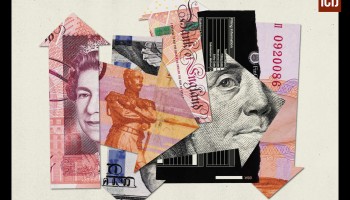The Justice Department’s Money Laundering and Bank Integrity Unit is aggressively using the Bank Secrecy Act of 1970, which requires banks to help the government identify and prevent laundering. The unit recently obtained a guilty plea from French bank BNP Paribas on charges of massive violations of US economic sanctions.
 Leslie Caldwell, head of the Justice Department’s Criminal Division, told Reuters, “The old-school way of attacking money laundering ... really didn't get at the problem, which was that many banks did not have adequate controls in place to prevent those transactions from happening.”
Leslie Caldwell, head of the Justice Department’s Criminal Division, told Reuters, “The old-school way of attacking money laundering ... really didn't get at the problem, which was that many banks did not have adequate controls in place to prevent those transactions from happening.”
Institutions violating the Bank Secrecy Act are subject to large fines, such as the $8.9 billion payment by BNP Paribas and the $1.9 billion which HSBC agreed to pay in December 2012, as part of a deferred prosecution agreement on charges of having facilitated money laundering by drug traffickers and countries sanctioned by the US.
The potential for penalties like these, as well as the increased investment required to meet transaction monitoring standards, have led many banks to increase costs for consumers or to discontinue transfer services to high-risk countries, the New York Times reports. Mexico, despite being one of the main recipients of remittances from the US, is considered high risk because of the prevalence of drug trafficking there. HSBC’s settlement in 2012 was partially a result of failure to prevent the laundering of “at least $881 million in drug trafficking proceeds,” according to the Justice Department.





